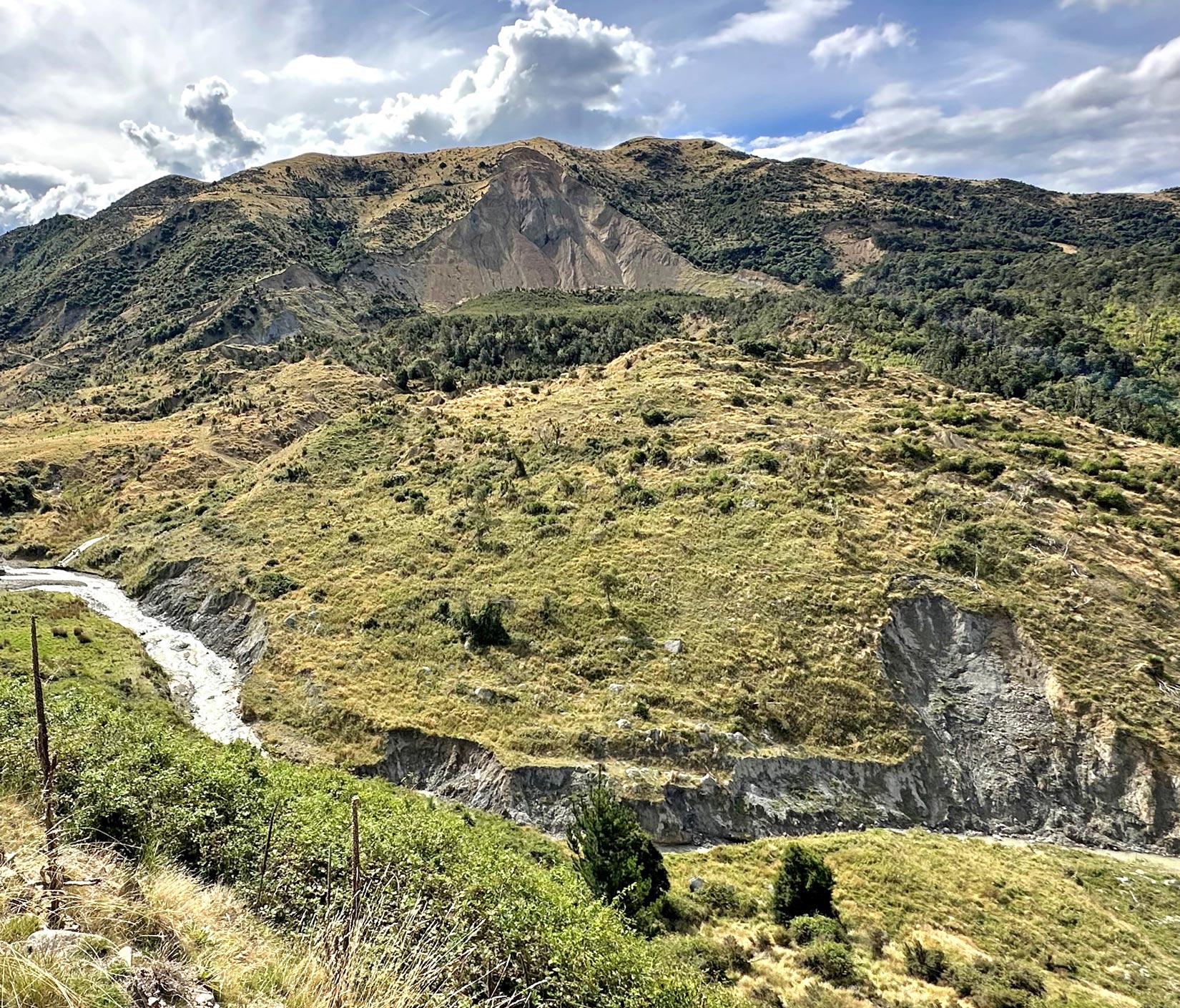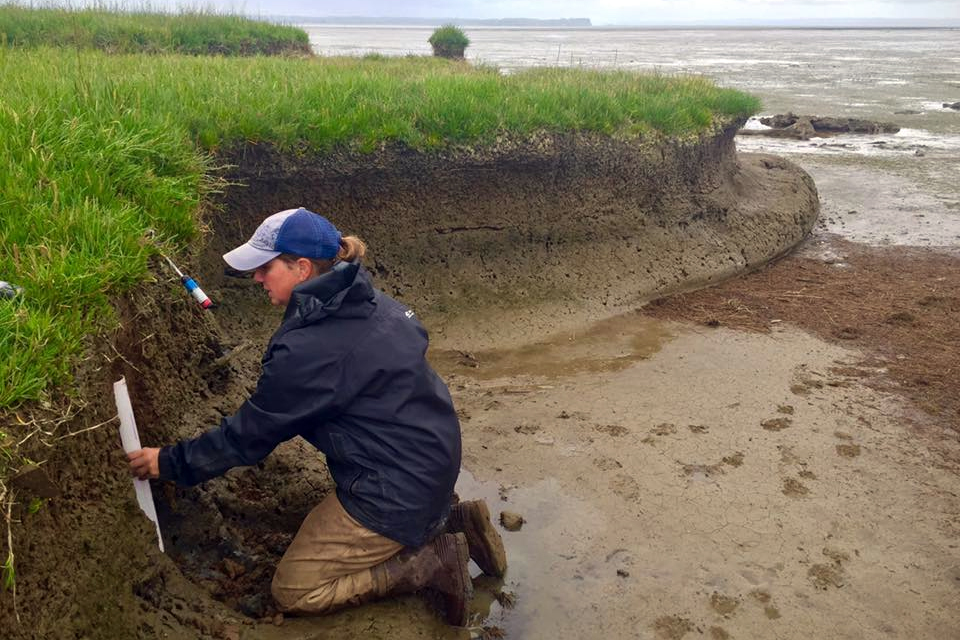The multi-institution center will advance understanding of the Cascadia subduction zone and improve earthquake resiliency in the Pacific Northwest.

Courtesy: Ben Leschinsky/UNCW
UNCW is partnering with several institutions including lead university, the University of Oregon, on a new multi-institution earthquake research center. The National Science Foundation will fund $15 million over five years for researchers to study the Cascadia subduction zone and bolster earthquake preparedness in the Pacific Northwest and beyond.
The Cascadia Region Earthquake Science Center (CRESCENT) will be the first center of its kind in the nation focused on earthquakes at subduction zones, where one tectonic plate slides beneath another.

UNCW Professor of Earth and Earth Sciences Andrea Hawkes will co-lead the Cascadia Paleoseismology (CPAL) portion of the grant with several partners. She will receive about $330,000 from the grant to study earthquakes going back thousands of years.
“Ideally, the center, research performed and collaborations built will all lead to a better understanding of the hazard Cascadia possesses,” said Hawkes. “All communities have potential natural hazards--hurricanes, fires, drought, earthquakes--and to better understand the scale of a given hazard potential, we have to understand how that hazard has varied over time.”
The center will unite scientists studying the possible impacts of a major earthquake along the Cascadia subduction zone, an offshore tectonic plate boundary that stretches more than 1000 kilometers from southern British Columbia to northern California. It will advance earthquake research, foster community partnerships, and diversify and train the next generation geosciences work force.
“The main goal of the center is to bring together the large group of geoscientists working in Cascadia to march together to the beat of a singular drum,” said Diego Melgar, associate professor of earth sciences at the University of Oregon and the director of the new center. “The center organizes us, focuses collaboration and identifies key priorities, rather than these institutions competing.”
Hawkes plans to involve UNCW graduate students in the research over the next five years.
“We will work to produce new data that helps determine the scale of the hazard, leading to more resilient communities, all while mentoring future paleoseismologists to continue this type of work and evolve it as they go,” she said.
The Cascadia subduction zone has a long history of spurring large earthquakes, but scientists have only started to realize its power within the last few decades. Research shows that the fault is capable of producing an earthquake of magnitude 9.0 or greater—and communities along the U.S. West Coast are ill-prepared for a quake this powerful.
Such an event would set off a cascade of deadly natural hazards in the Cascadia region, from tsunamis to landslides. It could cause buildings and bridges to collapse, disrupt power and gas lines, and leave water supplies inaccessible for months. Learn more about the project on the University of Oregon website.
CRESCENT participating institutions include:
- University of Oregon
- Central Washington University
- Oregon State University
- University of Washington
- Cal Poly Humboldt
- Portland State University
- Purdue University
- Smith College
- Stanford University
- UC San Diego, Scripps Institution of Oceanography
- University of North Carolina Wilmington
- Virginia Tech
- Washington State University
- Western Washington University
This article has the following tags: CSE - College of Science & Engineering Research & Innovation myUNCW - Faculty & Staff myUNCW Academics


